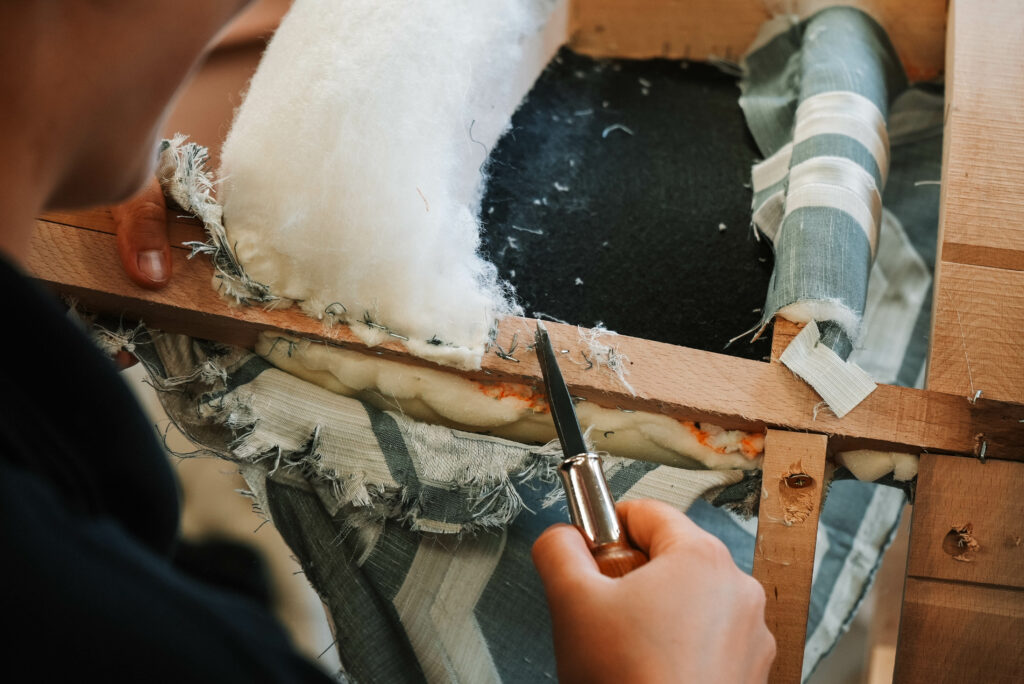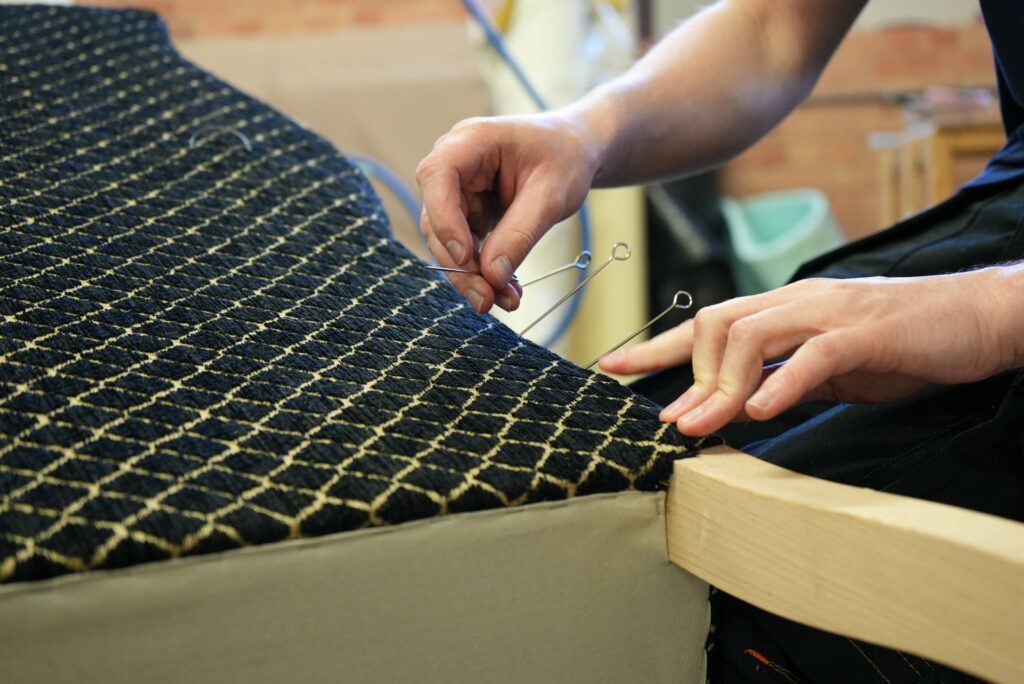Samarah Dawson, Business Development Manager at WEBS Training, asks the question, what is the future for British Furniture Manufacture, and will it be left behind?

I am proud of British furniture manufacture, where so much of it is still made by hand. The people who make furniture are modern-day craftspeople. Yet speaking with multiple employers and apprentices on the challenges facing British manufacture, odds seem to be stacked against us, and it is hard not to feel a little disheartened.
In conversation with local employers, we are seeing increased numbers of furniture businesses considering importing their furniture to sell on the British market. Businesses are saying they are struggling with the costs of UK production and are having to look at manufacturing abroad to maintain their profit.
Challenges
There have been huge increases in overheads and running costs for manufacturing, owing to several factors including energy cost increases and high interest rates.
The raise in minimum wage is also a hot topic for employers regarding costs – especially compared to wages outside of the UK. However, I don’t believe that restricting the earning potential of our manufacturers is the solution. It will only increase the skills gap and push people away from furniture making even further.
There is increased pressure and costs from another angle too – a combination of the cost-of-living crisis and fast fashion furniture trends has meant consumers want more economical choices. Retailers are also suffering increased costs and larger proportions of business rates. This all puts increased demand on British furniture manufacturers to reduce their prices, which is unsustainable – leaving some feeling they have no choice but to outsource to overseas production.

Is British furniture manufacture the best?
With 2021 statistics showing £12.2 billion manufacturing turnover, it is not a value we want to lose from our economy – not to mention the near 109k workers in the sector. But choosing imported product rather than British-made seems to be an increasingly attractive choice.
When speaking to manufacturers and retailers using overseas production, and from my own experiences of factories abroad, overseas manufacturers do appear to be getting it right. With clean, spacious, purpose-built facilities using additional manufacturing technologies, along with enjoyable staff spaces – they seem to be ticking all the boxes. And it may be leaving British furniture production behind.
If we are being honest, how many British furniture factories are leaky during winter, stuffy during summer, and overall, a little bit neglected? Do our factory employees have workspaces with natural light, and relaxing areas away from production to take breaks from their manual work?
Depending on our answers, attracting people to work in these environments may be a challenge. In some cases, apprentices have given feedback to WEBS Training of wanting to leave the industry due to work conditions – and returning to that ever-looming cloud of the skills gap, if there is no-one to make British furniture, using overseas manufacture may become the only choice. But renovations and new technology are all costly investments.
So, what is the solution?
We know we need to preserve British manufacture – that’s easy enough said – but how do we achieve the high-quality that British manufacture is renowned for, whilst paying increased costs and meeting the retailer and consumer price expectations?
Consumer engagement with British made
When we think of British Furniture Manufacture, we think of things like heritage, quality, craftmanship. By engaging with the consumer on the benefits of quality products and their longevity, they may be happy to pay that bit more for the true value of British-made.
With consumers moving towards more environmentally conscious products, this could also be a powerful tool in preserving British manufacture. It is a strong environmental message to have your furniture made and delivered from just down the road!

Governmental support
Furniture makers and their associations need to push local and national authorities so British furniture manufacture is not overlooked. Furniture manufacture was not mentioned specifically in the autumn budget, so it is unlikely to receive funding or support to improve our facilities – which should be challenged.
We collectively need to raise the profile of British furniture manufacture so that we don’t get lost amongst larger manufacturing sectors such as automotive and engineering – which furniture manufacture so often does.
Export of British products
The quality of British furniture is known worldwide, so this could be a great opportunity for British manufacturers if the UK market is slow. However smaller businesses with no experience in this area would need support to access these markets.
All of these would support the preservation of British manufacture, enabling businesses to recruit apprentices to continue these skills and secure the next generation of furniture craftspeople in the UK. British furniture is wonderful, and we should strive to protect it.
If you are a British manufacturer and would like to train an apprentice with WEBS Training, a specialised furniture training provider, then please contact us on info@webstraining.com.















